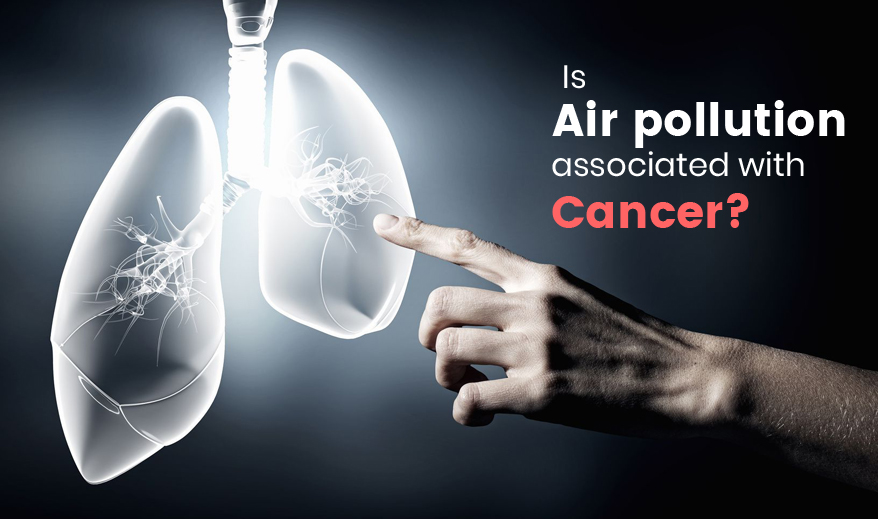
Posted in: Cancer by Dr. Tarang Krishna Posted Date: 19 Nov, 2019
The increasing number of people living in urban areas has caused cities to become more crowded. With an increase in population, there is an increase in vehicles, discharging more and more dirty emissions. With technological advancements, practically everything we do depends on electricity. The factories emit large amounts of harmful gases. All these factors have increased greenhouse gases in the atmosphere, resulting in global warming and making the air we breathe dangerously polluted.
People inhale about 10,000 litres of air daily. According to the WHO, the air we breathe every day is full of cancer-causing substances and is classified as carcinogenic to humans. As a result, the lung receives huge doses of many air contaminants, even those present at seemingly low and trivial concentrations. Around nine out of ten people breathe polluted air globally. About 50% of the urban population across the globe is exposed to air pollution which is at least 2.5 times higher than the safe levels recommended by the World Health Organization (WHO).
The International Agency for Research on Cancer (IARC) collected data and showed that 223,000 deaths from lung cancer in 2010 were a result of air pollution. It also said that there is sufficient convincing evidence which proves that it increases the risk of bladder cancer.
Dr Kurt Straif, from IARC, said: "The air we breathe has become polluted with a mixture of cancer-causing substances. We now know that outdoor air pollution is not only a major risk to health in general, but also a leading environmental cause of cancer deaths."
The impacts are majorly borne by the population of the highly polluted cities in the developing nation’s accounting to approximately 60% of the world’s burden of air pollution attributed to the diseases.
What is Air Pollution?
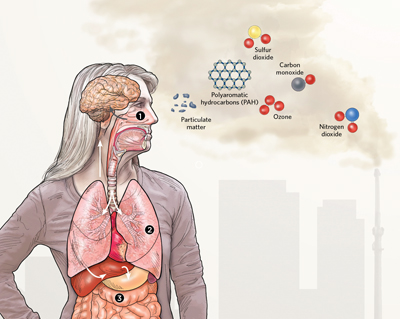
Air pollution is a mixture of various substances with varying content depending on the location of the source of pollutant. Source of air pollution include transport, emission from agriculture and industries, fossil fuels, cigarette smoke and fuels produced during cooking and heating the houses. Few of the other pollutants found in the air include Nitrogen dioxide, Sulphur dioxide, Ozone gas, Carbon monoxide and PAHs (polycyclic aromatic hydrocarbons). Natural pollutants include dust and radon.
What is Particle Pollution?
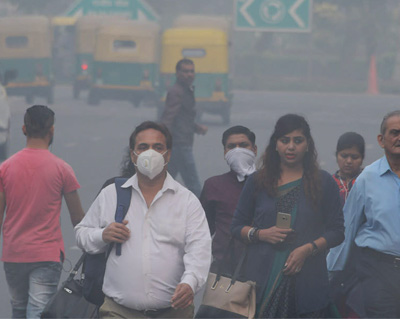
Particle pollution, also known as particulate matter of PM is a mix of tiny solid and liquid particles which is made of a number of components such as acids, metals, soil and dust particles and organic chemicals. These particles are a tiny fraction of the diameter of a human hair, and much, much smaller than a grain of sand. The particulate matter can be directly released from the forest fires, wood stoves, vehicles and other sources and it can also form other types of pollution which come from sources such as power plants. However, research is continuing to determine how the size of and different compounds in these particles affect human health in different ways.
What accounts for Air Pollution?
Many government and non-profit organizations use an air quality index (AQI) to measure air pollution. Few of the most common pollutants include:
- Benzene: Benzene is a colorless, flammable liquid that is used as a starting material for making plastics, rubbers, lubricants, dyes etc. People can be exposed to the chemical by breathing in air containing benzene either at workplace or by using products containing benzene. According to research on both people and lab animals, benzene is linked with leukemia and cancer of other blood cells.
- Radon: Radon, a colorless odorless gas is formed naturally when radioactive elements like uranium decay. Major radon exposure comes from homes, schools and other places depending on the rock and soil in the area. Long term exposure to radon can increase the risk of lung cancer. Cigarette smoking along with exposure to radon gas increases the risk of lung cancer than either factor alone. It is advised to quit smoking as smoking not only increases the risk of lung cancer but also other types of cancer.
- Diesel exhaust: Fuels derived from crude oil used in trucks, trains, ships etc. is known to increase the risk of several cancers including the cancers of the lung, larynx, esophagus and stomach.
Apart from above three, here are the six atmospheric pollutants in the air that also cause air pollution:
- Nitrogen dioxide (NO2)
- Sulfur dioxide (SO2)
- Suspended particulates smaller than 10 μm in aerodynamic diameter (PM10)
- Suspended particulates smaller than 2.5 μm in aerodynamic diameter (PM2.5)
- Carbon monoxide (CO)
- Ozone (O3)
What are the Health Risks of Air Pollution?
According to the International Energy Agency (IEA), the poor quality of air has(remove) is amongst the largest threats to human health after high blood pressure, pollution, dietary risks and smoking. When we breathe polluted air, microscopic pollutants enter our bodies. They penetrate deep into our respiratory and circulatory system.
This can damage the lungs, the heart, and even the brain. On the other hand, the bigger particles can irritate the eyes, nose and throat but our natural defenses can help us to cough or sneeze them out of our bodies. Unfortunately, the defenses don’t keep the smaller particles at bay as they get trapped deep in the lungs and can even get into the bloodstream, causing severe damage to our health. The major health risks below shows the statistics of air pollution:
- Stroke - 1.4 million deaths every year are attributable to stroke from air pollution.
- Heart Disease - 2.4 million deaths every year from heart disease is attributable to air pollution.
- Lung Cancer - 1.8 million deaths from lung disease are attributable to air pollution.
Does Air Pollution increase the Risk of Lung Cancer?
The direct answer is YES. The International Agency for Research on Cancer has confirmed air pollution as a leading cause of cancer. Though a large number of cases are caused by tobacco smoking, environmental causes such as ‘air pollution’ has been a concern too. Researchers have noted that ‘particulate matter’ or the tiny dust-like particles which could be as small as millionths of a meter wide present in the air can increase the risk of lung cancer and other adverse health effects including increased mortality and morbidity from non-malignant cardiovascular and respiratory disease and lung cancer. While air pollution is now a known cause of lung cancer, research is ongoing to determine exactly how these minuscule particles impact the DNA in cells and cause cancer.
What actions you can take to reduce Air Pollution?
To curb and effectively reduce the main sources of air pollution, a variety of private measures as well as government policies are required. We should start relying on cleaner transport, alternative power generation, waste management, and energy-efficient industrial activities. For instance, adding more renewable energy and replacing the gasoline-fueled cars with zero-emission vehicles. However, on a larger scale, governments at all levels should make commitments to limit the emission of carbon dioxide and other greenhouse gases.
On an individual level, people can safeguard against indoor air pollution by increasing the ventilation, using air purifiers, running kitchen and bathroom exhaust fans, and avoid smoking. Check the air quality index forecast for the day and limit the activity if the pollution levels are high. Also, avoid exercising along the heavily travelled roads or highways irrespective of the overall forecast and Get regular health checkups if you have been exposed to radon or benzene for a long period of time. Reduce the use of aerosols in the household, If possible share the room with others when using air conditioner and avoid burning waste; put them in the pit holes.
With few changes in your lifestyle you can make a big difference. Remember, if you pollute the air today; it will pollute your lungs tomorrow.





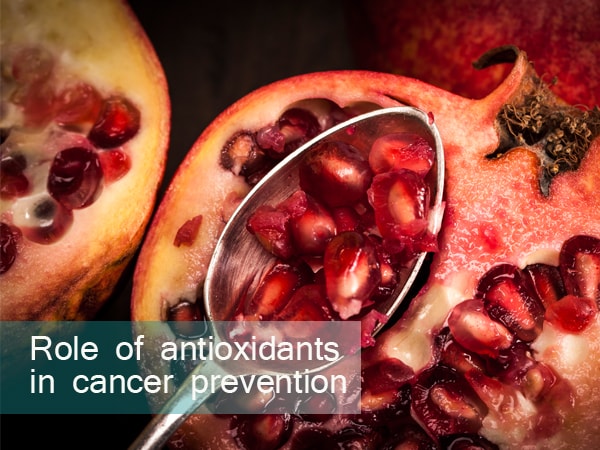
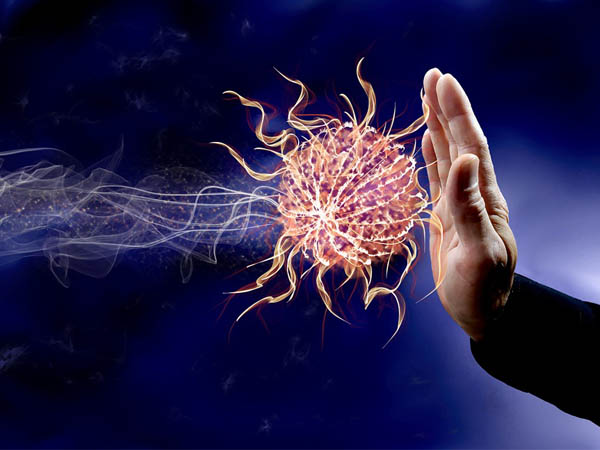
_1552549280.jpeg)